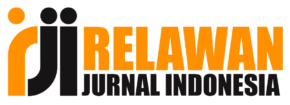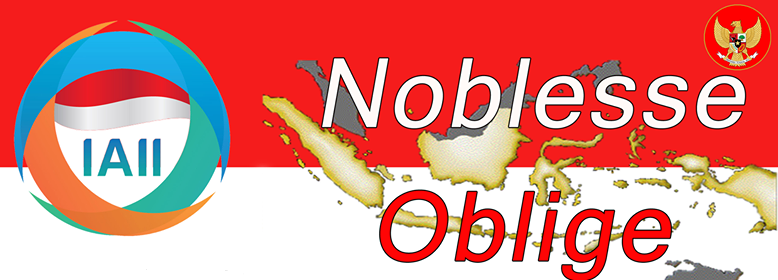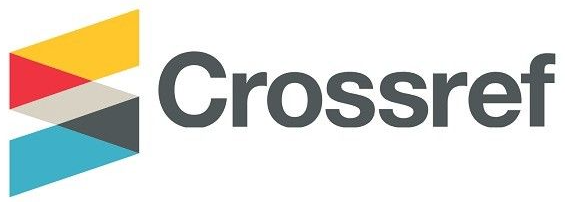Career Development Expert System Application Using the Entrepreneurship Personality Inventory
Aplikasi Expert system Pengembangan Karir Menggunakan Inventory Kepribadian Entrepreneurship
Abstract
This study aims to describe the process of designing expert system applications in career development using entrepreneurship personality inventory. The reason for conducting this research is a) the limited number of instruments that are able to measure the entrepreneurship personality of vocational students, b) the high costs incurred in conducting personality tests in career development of vocational students, c) The need for an application that is able to speed up the process of identifying personality and provide recommendations careers for vocational students. The research methodology used is Research and Development. There are four stages that must be carried out: Define, Design, Develop and Disseminate. The instrument used to measure entrepreneurial personality is inventory (non-test) with four indicators of entrepreneurship personality, namely Extroverted, Leader, Moderate Risk Taker, Ambisious, and tested fit using Confirmatory Factor Analysis. The research sample was 30 vocational high school students in the field of Information Technology and Computers. Bayes Method is used for the process of transferring knowledge from experts to the system and decision making, after Based on the results of data analysis, it was found that a) Career development applications based on Entrepreneurship Personality are valid with a percentage (0.887) and very practical (91.11), the results of product effectiveness are 82.47 (effective). Therefore this application is declared valid, practical and effective in measuring the personality of vocational student entrepreneurship.
Downloads
References
H. Zhao and S. E. Seibert, “The big five personality dimensions and entrepreneurial status: A meta-analytical review,” J. Appl. Psychol., vol. 91, no. 2, pp. 259–271, 2006, doi: 10.1037/0021-9010.91.2.259.
N. Nicolaou and S. Shane, “Journal of Economic Behavior & Organization Entrepreneurship and occupational choice : Genetic and environmental influences,” J. Econ. Behav. Organ. 76 3-14, vol. 76, no. 3, pp. 3–14, 2010, doi: 10.1016/j.jebo.2010.02.009.
Depdiknas, “Undang Undang Republik Indonesia Nomor 20 Tahun 2003 Tentang Sistem Pendidikan Nasional,” pp. 1–33, 2003.
H. Thorp and B. Goldstein, The entrepreneurial university in the twenty-first century, no. 1. 2010.
I. Murni and Noviarti, “Penyusunan Indeks Psikometrik Kewirausahaan Perbandingan Mahasiswa Indonesia Dan Malaysia,” J. Ipteks Terap., vol. 8, no. 1, pp. 1–9, 2014, doi: 10.22216/jit.2014.v8i1.181.
G. W. Allport, “Concepts of trait and personality.,” Psychol. Bull., vol. 24, no. 5, pp. 284–293, 1927, doi: 10.1037/h0073629.
R. J. Sternberg, “Successful intelligence: A model for testing intelligence beyond IQ tests,” Eur. J. Educ. Psychol., vol. 8, no. 2, pp. 76–84, 2015, doi: 10.1016/j.ejeps.2015.09.004.
D. Merritt, “Building expert system s in prolog,” Knowledge-Based Syst., vol. 3, no. 2, pp. 122–123, 2001, doi: 10.1016/0950-7051(90)90009-7.
E. D. Martianingtiyas, “Research and Development : Inovasi Produk dalam Pembelajaran,” Digilib Universitas Muhammadiyah, 2019. .
R. Darni, “Expert system Model of the Entrepreneurship Personality Test,” 2018.
A. Rusilowati, “Pengembangan Instrumen Non Tes,” 2014, no. Evaluasi Pendidikan, pp. 121–128.
S. Gupta and R. Singhal, “International Journal on Recent and Innovation Trends in Computing and Communication Fundamentals and Characteristics of an Expert system ,” Int. J. Recent Innov. Trends Comput. Commun., vol. 1, no. 3, pp. 110–113, 2013.
R. Hamdani, “Penerapan Metode Bayes Dalam Mendiagnosa Gangguan Perkembangan Pada Anak,” J. Mantik Penusa, vol. 20, no. 1, pp. 69–73, 2016.
Copyright (c) 2020 Jurnal RESTI (Rekayasa Sistem dan Teknologi Informasi)

This work is licensed under a Creative Commons Attribution 4.0 International License.
Copyright in each article belongs to the author
- The author acknowledges that the RESTI Journal (System Engineering and Information Technology) is the first publisher to publish with a license Creative Commons Attribution 4.0 International License.
- Authors can enter writing separately, arrange the non-exclusive distribution of manuscripts that have been published in this journal into other versions (eg sent to the author's institutional repository, publication in a book, etc.), by acknowledging that the manuscript has been published for the first time in the RESTI (Rekayasa Sistem dan Teknologi Informasi) journal ;







